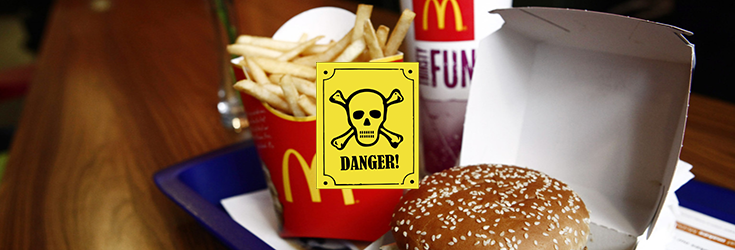How This Loophole Allows Food Companies to Police Themselves

If you wouldn’t dream of buying a food product before reading the label, you are not alone. More people than ever want to know what’s in the food they are buying, ruling out products containing known food additives. After reading several labels and being appalled at the amount of additives most foods contain, people want to know why this is being allowed. The Center for Public Integrity (CPI) has an answer, but it may not pass the test of common sense.
According to this investigative news organization, food companies have been able to pump thousands of non-food ingredients into their products because of a decades-old loophole which allows companies to police themselves.
Essentially, if a company decides a food additive it wants to use is safe, then it’s safe; case closed. All the company has to do is declare that the additive is generally recognized as safe (GRAS). This is a lot like the sleight of hand Monsanto uses when it says that GMOs are safe. In other words, they are safe because Monsanto says they are safe.
Food companies are able to declare GRAS status without any involvement from the FDA, and the CPI seems to think this also goes on without the FDA’s knowledge in many instances.
Why is there such a loophole, anyway? It was designed originally so that common items we take for granted as being food but are really additives, like sugar and salt, could skip the U.S. Food and Drug Administration (FDA)’s safety-review process. But food companies have used this free pass as a way to cram a variety of additives, many with major health consequences, into their products.
Read: 6 FDA-Approved Foods Banned in Other Nations
An example of this cited by CPI is lupin (or lupine), which is a member of the pea family that has not been part of the evolutionary process that designates a substance as a real food. Because lupin is new to the human body, it can act as a potent allergen, and that is just what happened. A young woman in Berlin with peanut allergy eating a pastry made with lupin flour, a new gluten-free substitute, was recently rushed to the hospital with a whole-body allergic reaction.
As of now, lupin is in greater use abroad than in the U.S. However, the FDA has known about the effects of lupin since 2008 and has not required food companies to identify its potential as an allergen. Today, food products containing lupin appear on grocery store shelves, but they carry no warning which people who are prone to allergies can heed.
Is the FDA Really Oblivious of Additives in Food?
A look at the FDA’s Food Additive Status List reveals it is quite comprehensive. Certainly this government agency is aware of most food additives and has turned a blind eye to their presence in the food supply.
In 2014, the agency issued a warning that lupin could cause allergic reactions, but chose not to require this information on labels of products containing the additive. The FDA has also allowed that loophole which enables food companies to be their own watchdogs to continue to exist, and in doing so has failed in its mandate to keep the food supply safe. This failure continues to put people at risk of allergic reaction and many other health problems.
This situation means you cannot rely on the FDA to watch out for your best interests. If you want to live a long and healthy life, you must look out for yourself and your children. One of the best ways to do that is by reading the labels of every food product you buy.
